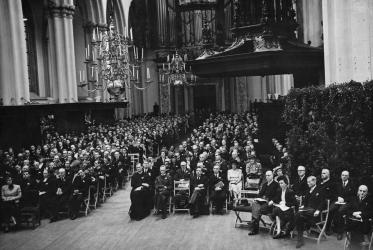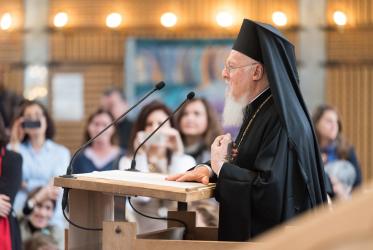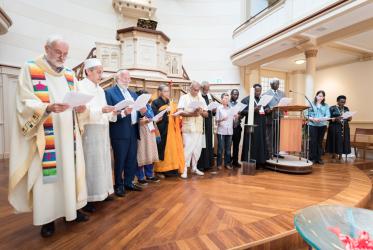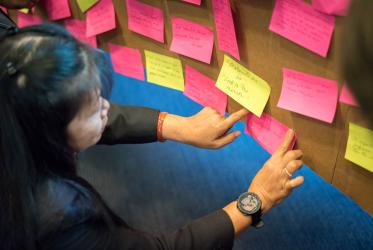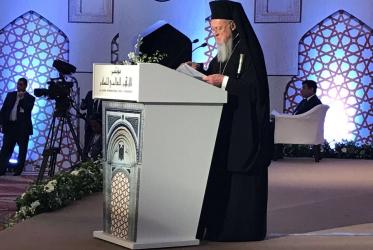Displaying 1 - 20 of 20
Patriarch Kirill meets with Ecumenical Patriarch
07 September 2018
Working toward an AIDS-free generation
26 July 2018
Building bridges of faith in the HIV response
25 July 2018
Building Bridges in the global HIV response
25 July 2018
Ecumenical Patriarch visits WCC
24 April 2017
Facilitating peace with passion
26 July 2016
“European solidarity must be strengthened”
29 October 2015
WCC welcomes resumption of peace talks on Cyprus
18 May 2015
Churches to be more inclusive of persons with disabilities
16 October 2014
